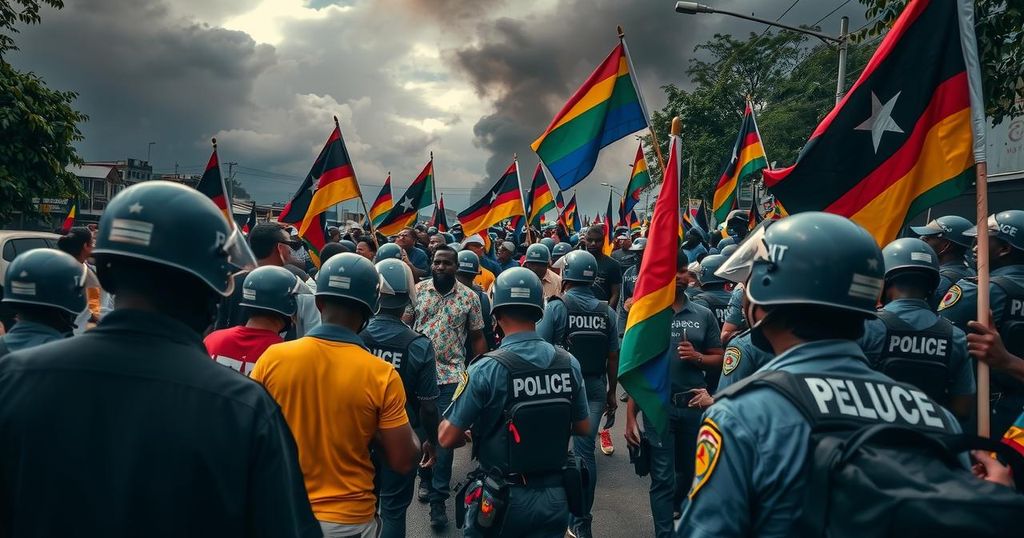Mozambique is engulfed in protests following the October 9 elections, where the ruling Frelimo party extended its grip on power amid accusations of electoral fraud. Security forces have responded violently, leading to numerous fatalities. The unrest has been exacerbated by the assassination of two opposition figures, emboldening public demonstrations and calls for political change.
Mozambique has experienced weeks of intense protests following the controversial results of the October 9 presidential elections, which favored the ruling Frelimo party, maintaining its dominance for over fifty years. As discontent simmered among citizens and political opponents alleging electoral fraud, security forces responded with violence, deploying tear gas and rubber bullets to disperse crowds. Reports indicate that at least twenty fatalities have occurred as a result of police action, with local sources suggesting the number could be higher than fifty. The elections were marred by accusations of ballot manipulation and intimidation, with the opposition expressing strong rejection of the electoral outcome. This wave of unrest was notably triggered by the deaths of two senior opposition figures shortly after the elections, which spurred independent candidate Venancio Mondlane to call for protests. Protests have escalated nationwide, with some demonstrators even attacking statues of the current president, Filipe Nyusi, who is nearing the end of his tenure. With widespread unrest now evident in major cities like Maputo, authorities have threatened to employ the military to control violent outbursts, as citizens express their discontent over the entrenched political regime. Additionally, social media restrictions and border closures by neighboring South Africa reflect the growing concern over stability in the region. Opposition figures continue to echo calls for civil disobedience as citizens strive for political change and accountability from long-standing powers.
The political landscape in Mozambique has been historically challenging, deeply affected by a prolonged civil war that persisted from 1977 to 1992, involving the ruling Frelimo party and its opposition, Renamo. Since gaining independence from Portugal in 1975, Mozambique has experienced cycles of political unrest and accusations of election misconduct. The recent presidential elections have been particularly contentious, with the ruling party being accused of vote rigging and suppressing dissent. Independent candidate Venancio Mondlane and his supporters represent a growing opposition movement seeking to challenge the political status quo, particularly among the nation’s youth who are increasingly dissatisfied with the government’s actions.
In summary, the post-election climate in Mozambique reflects deep-rooted frustrations towards the Frelimo party, which has faced accusations of electoral fraud and violent suppression of dissent. The protests indicate a significant public outcry for change and accountability, especially following the deaths of opposition figures. With threats of military intervention looming and international observers calling for accountability, the situation remains volatile as the country grapples with its political future.
Original Source: apnews.com






